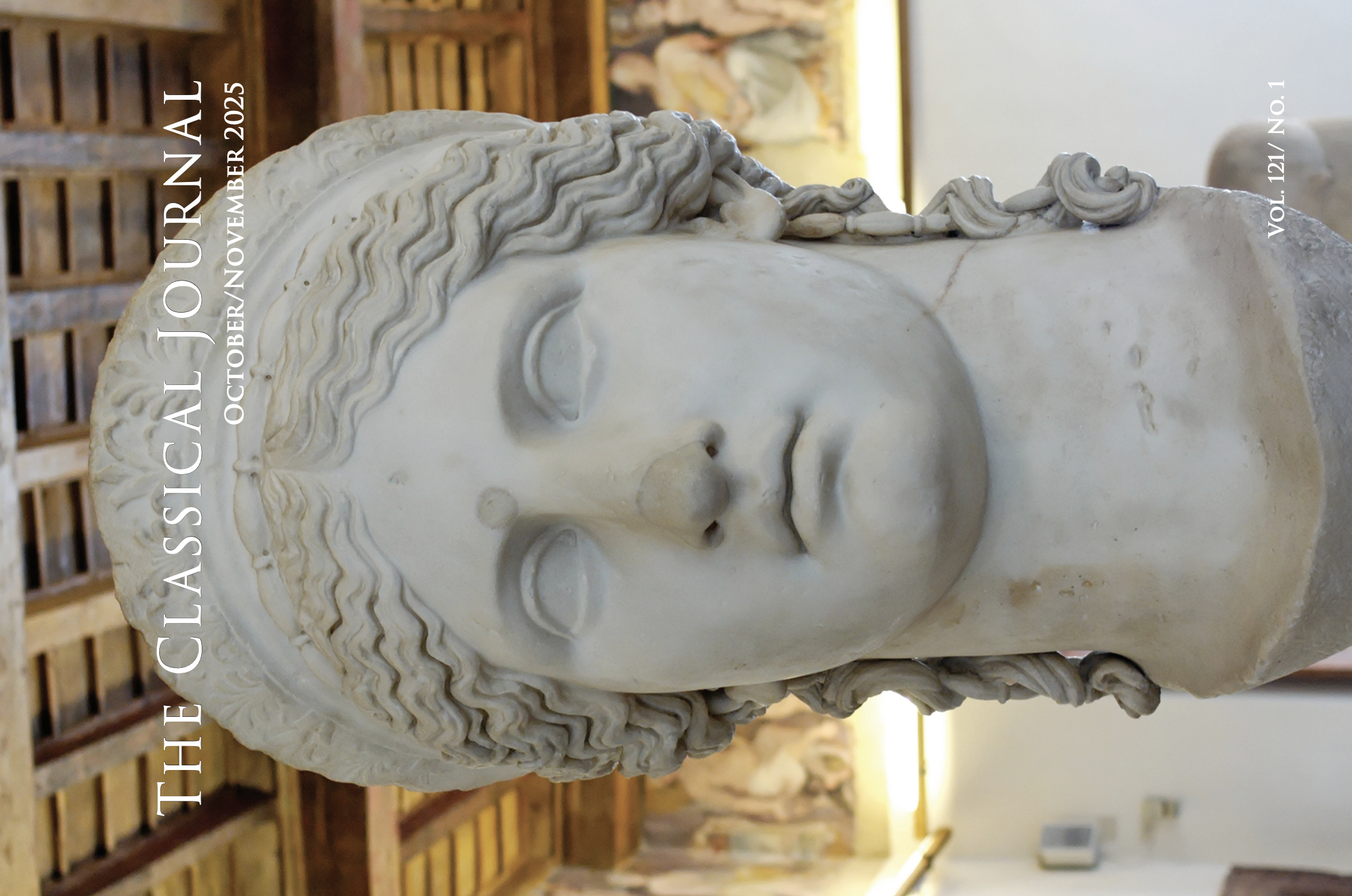The following articles are contained in CJ
117.4
Abstracts of Articles
The Other Iliad: Inversion and Likeness on the Battlefield
The narrative and figurative inversions in the Iliad’s central battle books function like a large-scale reverse simile. Just as similes force the audience to assess likeness and difference by comparing unlike terms, so when the Achaian camp adopts features of a city under siege, the audience is compelled to consider how the Trojans and Achaians are, and are not, like one another. In building this simile-like reversal, the poem’s poetic devices are integrally at work with its narrative structure. The transposition has a universalizing effect—the story of your enemy may be like your own—even as the inversion makes the audience reconsider distinctions between the two sides at war.
Exchanging Agency: Aristotle's Involuntary Corrective Justice and Some Applications
In the fifth book of the Nicomachean Ethics, Aristotle treats involuntary corrective justice in an interesting but somewhat confusing way. In particular, he uses a model borrowed from market transactions, such that a wrong-doer is imagined as taking excessively from a victim. But the identity of what is exchanged is left unclear. I argue that it is a record of having exercised one’s will. This leads to some surprising results, including the possibility that the actions of a living person might affect the disposition of the dead. I then apply this model to some examples from Homer, Aeschylus and Antiphon.
Merely A Slave? Bastardy, Legitimation, and Inheritance in Euripides' Andromache
In this article, I argue that the divinely driven legitimation of Neoptolemus’ bastard child in Euripides’ Andromache may have evoked in the minds of the audience the legitimation of Athenian bastards that, as E. Carawan first proposed, took place after the outbreak of the plague in Athens in 430 BC.
Cydippe Defixa: An Examination of Ovid's Magical Language in Heroides 21
Throughout Heroides 21, Ovid’s Cydippe complains vehemently about the suffering that Acontius has caused her, only to agree to marry him at the end of the poem. In this paper, I argue that her agreement is the result of erotic magic in the form of Acontius’ inscribed apple. While Ovid suggests the presence of magic in this story through specific vocabulary and broader language reminiscent of amatory defixiones, these suggestions are intentionally ambiguous: Cydippe, the narrator, never realizes that she is the victim of a spell. Nevertheless, the magical constraints on her mind and emotions bring her ability to consent to the marriage libens (Ep. 21.240) into question.
On the Nature of the Romulean Tribes
It is generally held that the Romulean tribes were connected somehow with gentes and that membership of them depended on birth. Servius Tullius subsequently created an entirely different system of tribes, one based instead on residence, with the result that Roman citizenship could now be granted to others. Although this is the orthodox view of the Romulean tribes, it is not only based on hardly any evidence, but it actually requires that most of the evidence there is must be discarded. This paper reassesses the evidence for the Romulean tribes. It would appear that it ultimately derives from M. Terentius Varro’s reconstruction of Romulus’ Rome. As such, it sheds no light on archaic times.
Revisiting Baratre in DRN 3.955
In this study, we re-apprise Bockemüller’s largely ignored textual emendation of the unattested and likely corrupted baratre of DRN 3.955 to barathrum. Here we also attempt to supply internal and external evidence for Bockemüller’s correction of the strange vocative noun since that information remains wanting. In short, barathrum is shown to be a viable improvement since it coheres with theme and usage internal to the poem and is defensible externally when compared to similar vocative constructions and terms of abuse.


